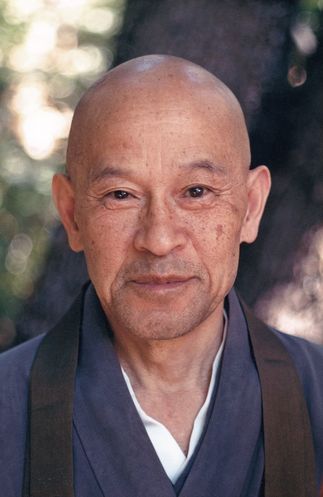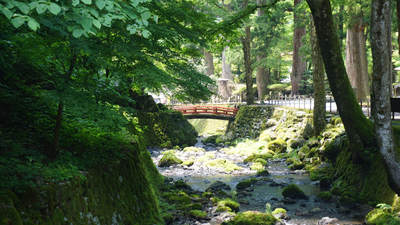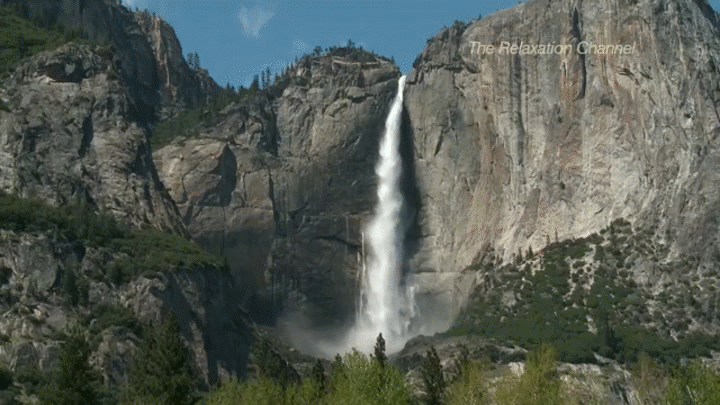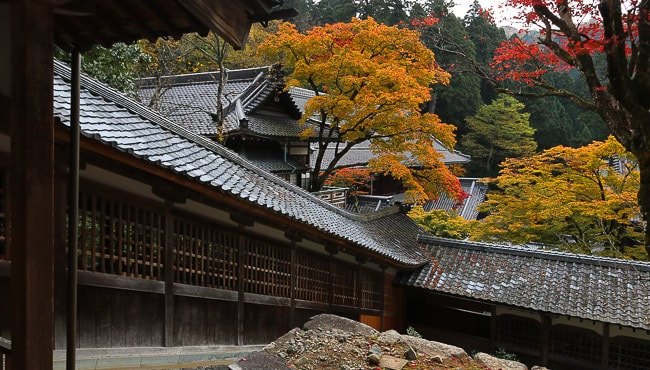On my journey around the world, I have been reading Buddhist texts. Most recently, a book by Zen teacher Shunryu Suzuki (1905-1971) called, Zen Mind, Beginner’s Mind. It is a collection of informal talks given at the Tassajara Zen Mountain Center near San Francisco (the first Zen monastery established outside of Asia). What follows is a talk called “The Waterfall” that I have replicated in its entirety:
If you go to Japan and visit Eiheiji monastery, just before you enter you will see a small bridge called Hanshaku-kyo, which means "half-dipper bridge." Whenever Dogen-zenji dipped water from the river, he used only half a dipperful, returning the rest to the river again, without throwing it away. That is why we call the bridge Hanshaku-kyo, "Half-Dipper Bridge." At Eiheiji when we wash our face, we fill the basin to just seventy percent of its capacity. And after we wash, we empty the water towards, rather than away from, our body. This expresses respect for the water. This kind of practice is not based on any idea of being economical. It may be difficult to understand why Dogen returned half of the water he dipped to the river. This kind of practice is beyond our thinking. When we feel the beauty of the river, when we are one with the water, we intuitively do it in Dogen's way. It is our true nature to do so. But if your true nature is covered by ideas of economy or efficiency, Dogen's way makes no sense.
When the water returns to its original oneness with the river, it no longer has any individual feeling to it; it resumes its own nature, and finds composure. How very glad the water must be to come back to the original river! If this is so, what feeling will we have when we die? I think we are like the water in the dipper. We will have composure then, perfect composure. It may be too perfect for us, just now, because we are so much attached to our own feeling, to our individual existence. For us, just now, we have some fear of death, but after we resume our true original nature, there is Nirvana. That is why we say, "To attain Nirvana is to pass away." "To pass away" is not a very adequate expression. Perhaps "to pass on," or "to go on," or "to join" would be better. Will you try to find some better expression for death? When you find it, you will have quite a new interpretation of your life. It will be like my experience when I saw the water in the big waterfall. Imagine! It was [1,430] feet high!
We say, "Everything comes out of emptiness." One whole river or one whole mind is emptiness. When we reach this understanding we find the true meaning of our life. When we reach this understanding we can see the beauty of human life. Before we realize this fact, everything that we see is just delusion. Sometimes we overestimate the beauty; sometimes we underestimate or ignore the beauty because our small mind is not in accord with reality.
To talk about it this way is quite easy, but to have the actual feeling is not so easy. But by your practice of zazen you can cultivate this feeling. When you can sit with your whole body and mind, and with the oneness of your mind under the control of the universal mind, you can easily attain this kind of right understanding. Your everyday life will be renewed without being attached to an old erroneous interpretation of life. When you realize this fact, you will discover how meaningless your old interpretation was, and how much useless effort you had been making. You will find the true meaning of life, and even though you have difficulty falling upright from the top of the waterfall to the bottom of the mountain, you will enjoy your life.
------------------------------
In meditation, the simple practice of sitting and focusing on the drawing and expelling of breath (zazen), we become aware of our integral relationship with the world around us. This is the experience of the waterfall, the emptiness, that Suzuki wants to awaken in us. Such a simple practice can introduce us to the joy inherent in our daily existence, whether we are stay at home parents, celebrities, entrepreneurs, unemployed, irreligious, or just human beings.
May this reflection on a waterfall bring you home.
*Of note: In Buddhism, unity is sometimes understood as the dissolution of self, while in Christianity, the self is typically understood to remain: the two become one, but remain two.




 RSS Feed
RSS Feed
